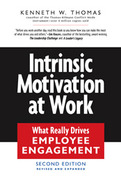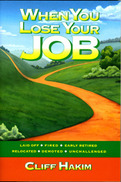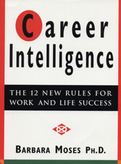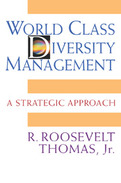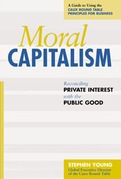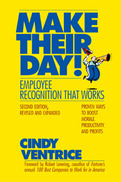• By the coauthor of Thomas-Kilmann Conflict Mode Instrument (6 million copies sold)
• Accessible, practical, and based on solid research, this book reveals how and why today's workplace requires more self-management, and why intrinsic motivation is now essential
• Details four intrinsic rewards that make work energizing and fulfilling
What motivates people to do their best work in any endeavor they undertake? Management theory and practice has traditionally focused on elements that Kenneth Thomas calls 'extrinsic motivators': pay, benefits, status, bonuses, commissions, pension plans, expense budgets, and the like. While these are powerful motivators, particularly in command/control job situations where workers have little or no say in how the job is managed, by themselves they are no longer enough. In today's organizations, where managers expect workers and teams to self-manage their work, intrinsic rewards are essential.
This breakthrough book provides the first comprehensive treatment of intrinsic motivation in the workplace-the psychological rewards workers get directly from the work itself-offering clear advice on how companies can harness its tremendous power to develop a more committed, self-managing workforce. Written in an engaging, accessible style and grounded in solid academic research, the book provides a diagnostic framework for addressing problems of intrinsic motivation and essential ways to build it.
Thomas describes four intrinsic rewards needed to energize today's employees:
• A sense of purpose or meaningfulness
• The ability to choose how the tasks are performed
• A sense of competence from performing work activities well, and
• A sense of progress.
Thomas offers detailed information on these rewards, together with the building blocks leaders and workers can use to create them. Finally, he spells out the practical implications for executives, managers, and employees themselves.
Intrinsic Motivation at Work makes a major contribution to the topic of work motivation-one that is based on a keen understanding of the changing requirements of today's workplace and the limitations of other motivational models. The paradigm and practical approaches this path-breaking book provides will help business leaders build motivation at every level of their organizations.
Ken is also the co-author of the new assessment, the Work Engagement Profile, which measures four intrinsic rewards that fuel employee engagement in the workplace, as discussed in Intrinsic Motivation at Work. The WEP is published by CPP, Inc.
Unlike other career books, When You Lose Your Job is written in the style of a story, telling a personal, revealing account of an individual's shock, fears, struggles, self-renewal, learnings, and eventual successes over many months in recovering from job loss. The story offers an inside view of what to expect in dealing with job loss, how to find the support you need, and how to take the steps that will lead to meaningful work.
Interspersed in the story are many practical career transition tools (such as guidelines for networking and interviewing). The book also includes a 65-page resource section that offers detailed information on legal issues, severance agreements, unemployment benefits, who to go to for help, support groups, and much more.
This booklet gives an overview of the Search Conference, a change strategy which uses open systems principles in strategic planning, thereby creating a well-articulated, achievable future with identifiable goals, a timetable, and action plans for realizing that future.
1998
Moses paints a vivid picture of the current dislocations in the workplace-the extraordinary productivity pressures, the erosion of personal time-and their gut-wrenching effects on individuals and their families. She reveals how changes in the workplace have affected different generations differently-from 20-somethings trying to get a foothold in the workplace to 30-somethings concerned about getting ahead to aging boomers recently displaced from the workforce-and examines their values, their psychological profile, and their future opportunities. She also presents a striking vision of the future, showing what it will be like to live and work in tomorrow's world, where we will all be free agents.
In clear, practical terms, Career Intelligence shows how individuals can benefit from key future trends and details the skills they will need to succeed-from learning how to self-market to being able to communicate in powerful ways, from understanding business trends to preparing for areas of competence. Chock full of concrete examples and anecdotes that everyone can relate to, Career Intelligence also offers advice to parents concerned about "career proofing" their children; gives managers insights into how to promote career independence and self-reliance in their staff; and discusses solid ways organizations can improve morale and productivity. Comprehensive, practical, and eminently readable, Career Intelligence provides a visionary blueprint for ongoing career success.
- By the bestselling author of Career Planning Workbook-used by almost one million people in over 1,500 organizations worldwide
- Shows people how to take control of your career, even in the face of tumultuous changes in today's workplace
- Presents 12 new rules for career success based on leading-edge insights into today's radically changed workplace
R. Roosevelt Thomas begins by laying out his Four Quadrant model, which encompasses all core diversity strategies: managing workforce demographic representation, managing demographic relationships, managing diverse talent, and managing all strategic diversity mixtures. He analyzes the goals, motives, approaches, accomplishments, and challenges associated with each quadrant, as well as the paradigm or mindset that lies behind each quadrant's express purpose.
Having laid out this broad range of strategies, Thomas shows how to realize them through the Strategic Diversity Management Process™, by far the most effective method for implementation. A detailed case study of CEO Jeff Kilt—a fictional composite of the many executives Thomas has worked with—effectively illustrates the complexities encountered when working with each of the Four Quadrant strategies in the real world.
This book offers a comprehensive blueprint that will enable leaders to address any diversity issue (not just race or gender) in any setting, anywhere in the world. Most important, it proves that a world-class standard of diversity management is indeed a possible and achievable goal.
-
Copublished with the American Society of Association Executives (ASAE)
-
Advances the field by providing a unified framework and terminology and spelling out exactly what needs to be done to build world-class diversity management capability
-
Identifies optimal implementation approaches that can be used anywhere, anytime
With demographic shifts and globalization transforming the nature of relationships, interactions, and decision making, excellence in diversity management is more important than ever. However, the field of diversity has no established standard for evaluating what constitutes best practices, nor has there been any agreement on what the most fundamental philosophies, principles, and concepts areuntil now. In this pioneering book R. Roosevelt Thomas, one of our most distinguished diversity theorists and practitioners, proposes a framework that will enable the development of a truly world-class diversity management capability. It was the development of such standards in manufacturing that enabled companies to strategically pursue excellence in this area.
A world-class approach to diversity management must be applicable anywhere in the world, be able to address any possible issue, facilitate comparison of different concepts and practices, and focus on the entire field of diversity rather than specific dimensions such as race or gender. These requirements are amply met by Thomass Four Quadrant model and his Strategic Diversity Management Process.
Thomas first analyzes each of four quadrantsmanaging workforce demographic representation, managing demographic relationships, managing diverse talent, and managing strategic mixturesexploring the goals, motives, approaches, accomplishments, and challenges associated with each. And he reveals the unrecognized paradigm or mind-set that lies behind each quadrants express purpose.
Once he has laid out the broad range of diversity management strategies, Thomas discusses how to realize them. He offers an overview of the Strategic Diversity Management Processby far the most effective framework for implementation. He also examines the on-the-ground dynamics of implementing each of the strategies and their associated paradigms by incorporating a case study of a CEO, a composite of the many executives Thomas has worked with.
2003
- Shows how to ensure that capitalism promotes progress and equality rather than enriching the few at the expense of many
- Based on principles developed by the Caux Round Table, an international network of senior business executives from such companies as 3M, Canon, NEC, Bankers Trust, Shell, Prudential, and dozens of other companies
- Provides practical guidelines for corporate social responsibility through the Caux Round Table's Seven General Principles for Business
The world is drifting without a clear plan for its economic development. Communism is dead, but in the wake of Enron and similar scandals, many see capitalism as amoral and too easily abused. A blueprint for progress is needed and Moral Capitalism provides one.
Moral Capitalism is based on principles developed by the Caux Round Table, an extraordinary international network of top business executives who believe that business can-and must-weigh both profit and principle. Caux Round Table's global chair, Stephen Young, argues that the ethical standards inherent in capitalism have been compromised by cultural values inimical to capitalism's essentially egalitarian, rational spirit, and distorted by the short-sighted dog-eat-dog doctrines of social Darwinism into what he calls brute capitalism. He demonstrates how the Caux Round Table's Seven General Principles for Business can serve as a blueprint for a new moral capitalism, and explores in detail how, if guided by these principles, capitalism is really the only system with the potential to reduce global poverty and tyranny and address the needs and aspirations of individuals, societies, and nations.
- Shows how to ensure that capitalism promotes progress and equality rather than enriching the few at the expense of many
- Based on principles developed by the Caux Round Table, an international network of senior business executives from such companies as 3M, Canon, NEC, Bankers Trust, Shell, Prudential, and dozens of other companies
- Provides practical guidelines for corporate social responsibility through the Caux Round Table's Seven General Principles for Business
2009
This second edition features new examples from innovative companies like Best Buy, Cisco Systems and Google, as well as detailing how to provide recognition in increasingly virtual workplaces, account for cultural differences in reward preferences, and ensure that rewards are perceived as fair and equitable.


